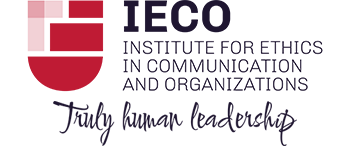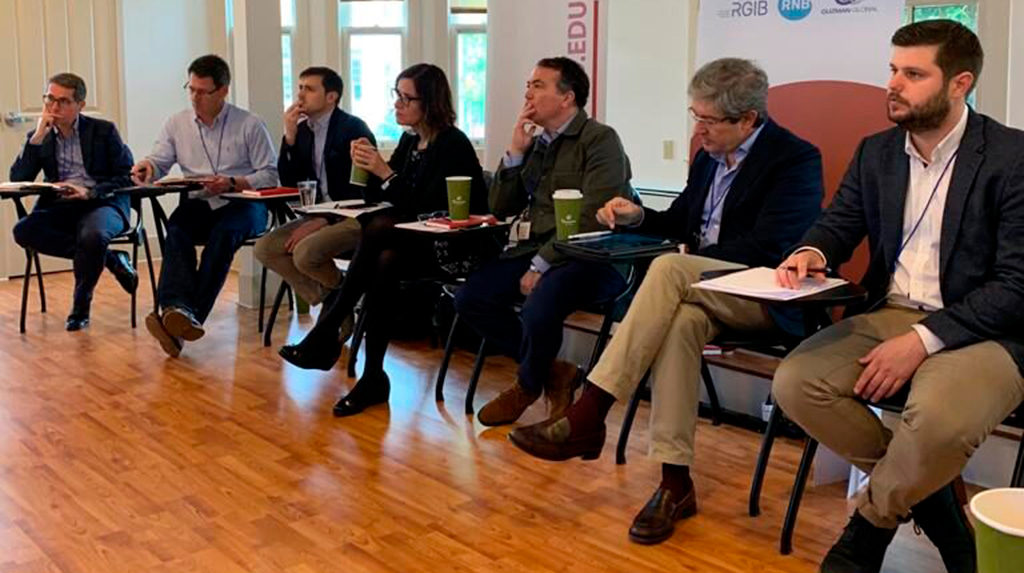These were the provocations that define the global humanistic management opportunity that brought top executives from several of Spain’s most progressive enterprises together this summer for the inaugural Humanistic Management Workshop.
This First HM Workshop IECO-RCC at Harvard was organized jointly by the Institute for Ethics in Communication and Organizations (IECO) and the Real Colegio Complutense (RCC) at Harvard University, in partnership with the International Humanistic Management Association’s (IHMA) Centers Consortium and the Abigail Adams Institute (AAI).Together, this path-breaking cohort developed an applied understanding of the requirements and responsibilities that leading people, defining strategy, and managing processes from foundations of dignity, complete human well-being, and good work involves.
Executives were challenged to become co-creators of transformational change in management mindsets and business narratives. The workshop focused on the kinds of safe and just organizational and operational environments in which individuals and humanity can thrive, as well as on re-conceptualizations of maximization, optimization, effectiveness, and value.
What would it take to maximize and optimize dignity, measure effectiveness in terms of human flourishing, and equate value with well-being?
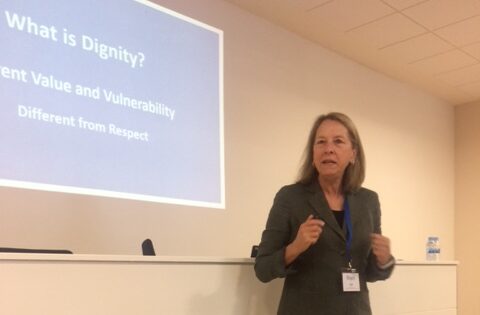
Presenter Dr. Donna Hicks (Harvard University) advocated for the importance of making meaningful human connections as a bedrock of dignity that enables us to demonstrate our care for each other. Her invitation to join together in a dignity circle defined by active sharing, deep listening, and the spirit of friendship provided an actionable model of humanism in organizing. Based on her research on the 10 Essential Elements of Dignity, executives identified their dignity strengths as well as areas to work on.
Dr. Hicks emphasized how dignity in the workplace has its genesis anywhere there is recognition that we all, each and every one of us, matter – and that we all want and deserve to be treated well. We matter intrinsically, simply by our unique presence in the world.
When we are treated well in our organizations, as if we matter, we flourish. When we are treated poorly in our organizations, as if we don’t matter, we suffer. Conceptually this dignity calculus can easily be mastered. However, making dignity real and actionable in our organizations requires more than just a conceptual calculus. Dr. Hick’s challenged executives to activate and amplify dignity by: 1. Seeing each other’s preciousness, and 2. Recognizing each other’s fragility.
Cultivating a dignity culture where we work involves seeing and treating others as invaluable and irreplaceable, and by loving, caring for, treasuring, and protecting each other. Honoring dignity brings out the best in ourselves and others, with positive ripple effects in our organizations and through our stakeholder relationships.
Presenter Sharif Younes (Co-founder, Optimal Work) shared findings about optimal work and performance conditions as a platform for advancing well-being in and through the workplace. Executives were introduced to three virtues to practice and habituate: being organized; being focused and applying full effort; and being consistent. Following a mindfulness exercise, executives focused on personal strengths and areas for improvement for engaging in and accomplishing meaningful work.
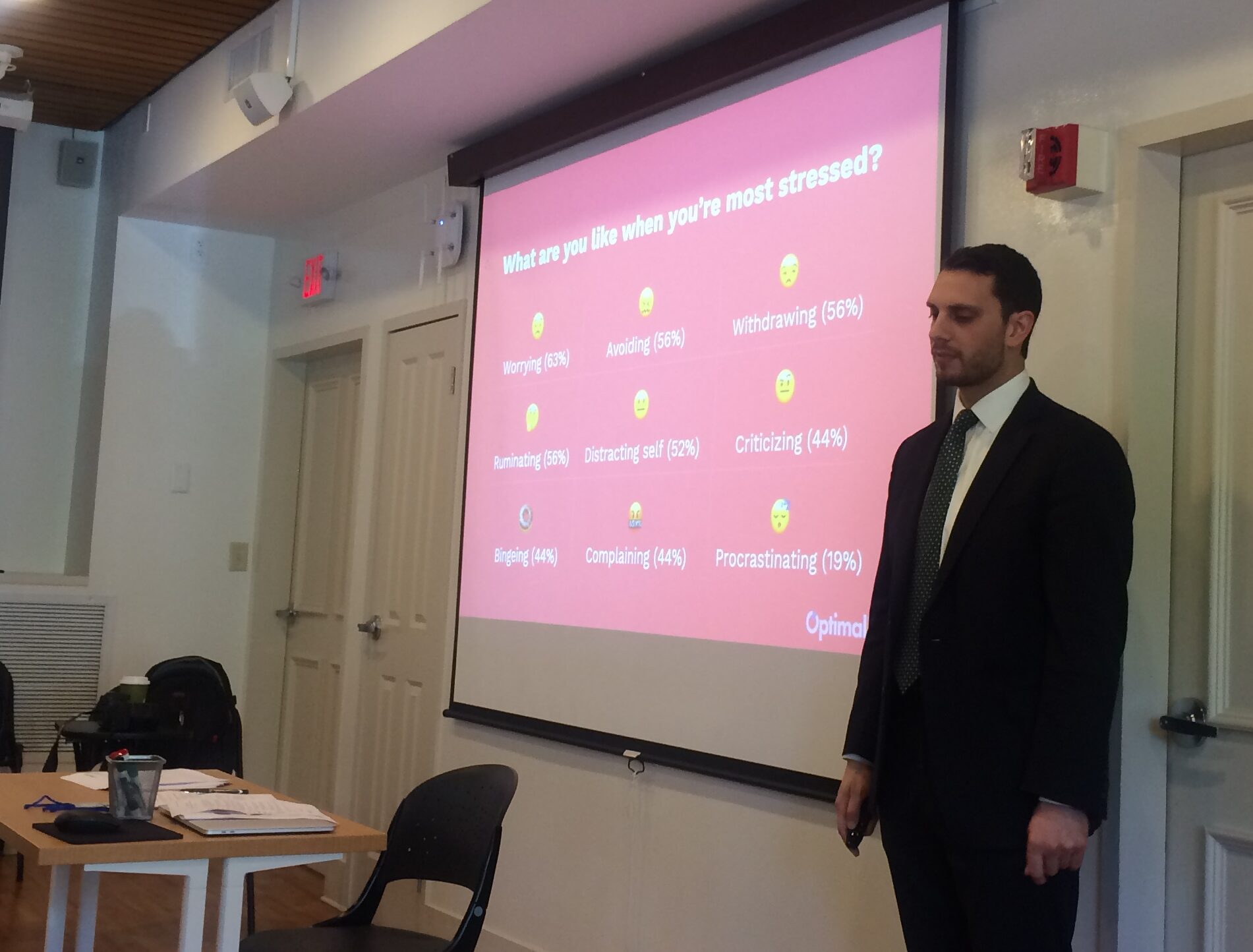
Optimal work enables enhanced meaning and connections to higher ideals of dignity and flourishing. Understanding work conditions and behaviors that support our own and others’ best work efforts, as well as what detracts or distracts from such efforts, is important for the personal growth and leadership development of humanistic managers.
Mr. Younes encouraged an actionable personal work strategy, the Golden Hour, to advance individual growth, improvement, and meaning-making by pursuing and accomplishing one specific ideal-driven goal in a given amount of time. Executives were also asked to reflect on: What if every moment is precious? How would this awareness change your work?
Presenter Dr. Tyler VanderWeele (Harvard University) shared insights on strategies for promoting human flourishing. Defined as complete human well-being, human flourishing is a state in which all aspects of a person’s life are good.
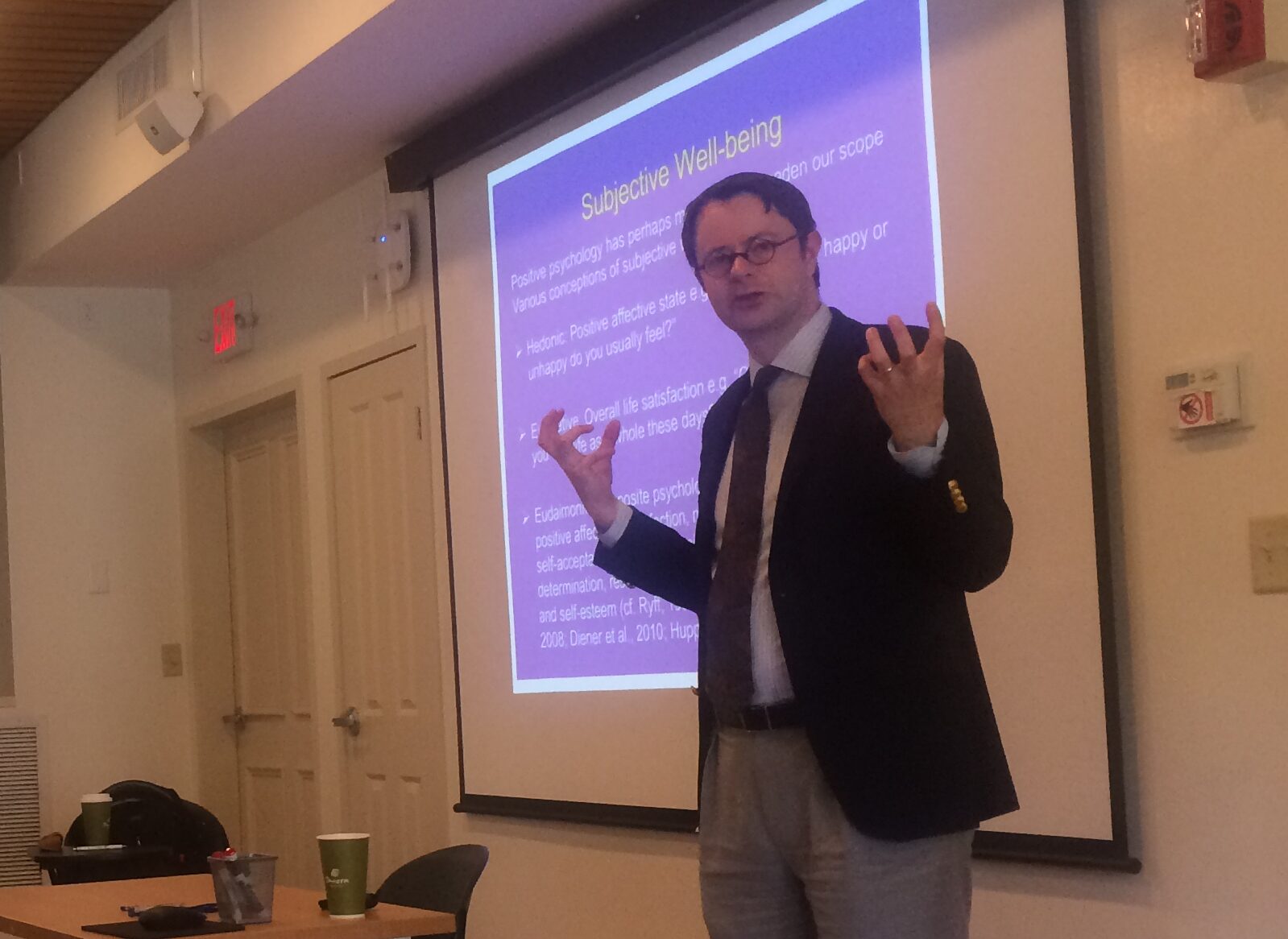
Executives were introduced to five universally desirable domains of human flourishing – physical and mental health, happiness and life satisfaction, meaning and purpose, character and virtue, and close social relationships. Each can be understood as a measurable unit of human flourishing across diverse workplace settings.
Listed by order of importance to individuals, these domains define priorities, possibilities, and access points of complete well-being in organizations. Dr. VanderWeele emphasized the accessibility of flourishing in organizations and encouraged executives to activated and promote complete human well-being through pathways of: Practicing acts of kindness; Showing gratitude; Promoting the best possible self; and Encouraging the use of character strengths.
Anchored by additional insights from Manuel Guillén (Founder and Director, IECO), Michael Pirson (Founder, IHMA), and Danilo Petranovich (Director, AAI), this year’s learning lab concluded with a final session to generate ideas and share insights for leading organizational transformation that prioritizes dignity, flourishing, and optimal work. Executives made commitments and practical resolutions to implement humanistic management in their firms at personal, relational (with their teams), and organizational-systemic levels. With significant goals to work on during the coming months, there is much enthusiasm for making meaningful progress by, and generating further momentum for, the 2020 Humanistic Management Workshop.
Invitation: If you are an executive interested in joining the Humanistic Management Workshop IECO-RCC Harvard next year, or learning more about professional development opportunities with a focus on protecting dignity and promoting well-being in organizing, please contact: rita.jacome@uv.es.
Authors:
Erica Steckler, Ph.D., is an assistant professor of management in the Manning School of Business and co-director of the Donahue Center for Business Ethics & Social Responsibility at the University of Massachusetts Lowell.
Rita Jácome, Ph.D., is the executive director of the IECO and the IECO business ethics chair at University of Valencia (Spain).
